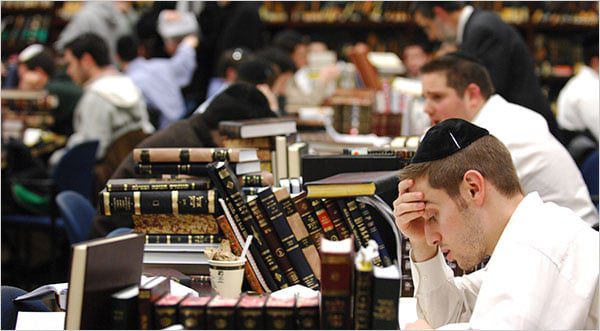
Last Thursday, a federal appeals court was asked to reinstate a lawsuit filed on behalf of 34 men who allege that they were sexually abused by rabbis at Yeshiva University High School for Boys; according to their lawsuit, the school covered up the abuse for decades. The case was previously dismissed by federal judge John […]
 Last Thursday, a federal appeals court was asked to reinstate a lawsuit filed on behalf of 34 men who allege that they were sexually abused by rabbis at Yeshiva University High School for Boys; according to their lawsuit, the school covered up the abuse for decades.
Last Thursday, a federal appeals court was asked to reinstate a lawsuit filed on behalf of 34 men who allege that they were sexually abused by rabbis at Yeshiva University High School for Boys; according to their lawsuit, the school covered up the abuse for decades.
The case was previously dismissed by federal judge John G. Koeltl, who ruled that the abuse had taken place too long ago for the lawsuit to proceed. Attorneys for the plaintiffs argued that the judge misinterpreted the statute of limitations. It was not known that the school helped hide the abuse until December 2012, when The Daily Forward published an article, the plaintiffs’ attorney said.
According to the New York Times, one aspect of the case is whether or not the victims should have determined the possibility of a cover-up before administrators admitted that they knew of the abuse. A three-judge panel debated when the former students could have learned of Yeshiva’s role in hiding the crimes. Yeshiva argued that the students had an obligation to complain of a cover-up immediately after the abuse happened, a claim that the judges challenged. Yeshiva’s lawyer claimed that the rabbis’ abuse was obvious, and argued former students “sat on their rights for between 20 and 40 years” the New York Times reports.
Judge Guido Calabresi reprimanded Yeshiva’s attorneys for this claim, calling it “remarkable”. He compared this to a car accident case, pointing out that an injured victim could not accuse a manufacturer of safety related issues immediately after the accident. Judge Calabresi said to the Yeshiva lawyer “Judge Koeltl knew what he was doing. I’m asking if you know what you are doing.” the New York Times reports.
Norman Lamm, chancellor of Yeshiva University, publicly apologized for the way he handled the allegations of abuse when he retired last year. “Despite my best intentions then,” he stated, “I now recognize that I was wrong.”
Nobody challenged the former students’ accounts of abuse. Judge Calabresi sympathized with the victims and said that the court was going to try to right the unmistakable wrongs that occurred, even as the claims about the statute of limitations were being considered. He called the rabbis’ actions “appalling” and said that “any decent court is going to be interested, if it possibly can, in giving redress.”


